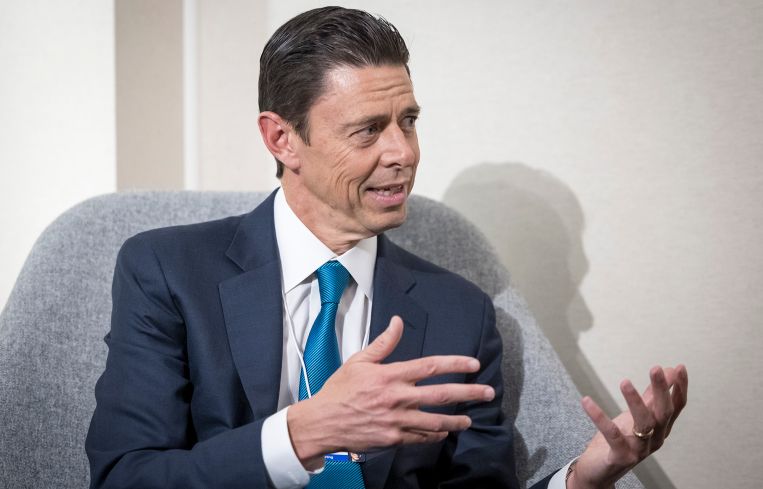KKR Already Hedged Against Market Uncertainty as Tariff War Continues
By Mark Hallum May 1, 2025 11:44 am
reprints
As fears about the global economy grow amid President Donald Trump’s trade wars, global investment firm KKR said the hatches are already battened down thanks to its experience during the COVID-19 crisis and the nation’s first go-round with Trump.
As such, the global political climate and Trump’s tariff war do not have KKR sweating over market instability or a potential recession, and its assets under management grew in the first quarter, with the expectation that existing assets will yield more revenue throughout the turbulence.
Total operating earnings were up 16 percent year-over-year by the end of the first quarter at about $1.1 billion as its assets under management grew to $664 billion, a 15 percent year-over-year increase, KKR executives outlined in the company’s first-quarter earnings call Thursday morning.
Tariffs could have an impact of about 10 percent on KKR’s assets under management, while the rest of its portfolio is protected, according to Chief Financial Officer Robert Lewin.
“I feel like in 90 percent of the outcomes on an [assets under management] basis that there’s no material exposure, and if you think about that other 10 percent, that doesn’t include any mitigation strategies that are, of course, already well underway,” Lewin said during the call. “The credit side of our business, actually, as we understand the tariffs today, we think there might be even less exposure than what we’re seeing in our private equity portfolio today.”
The credit side of its business may benefit from a potential $35 billion financing package provided in February to Meta Platforms for the acquisition of data centers, which have proved highly resilient thus far, with the lenders being KKR and Apollo Global Management.
KKR also launched an $850 million credit fund for the U.S. and Europe, designed to help landlords refinance without involving a bank as well as acquire commercial mortgage-backed securities (CMBS) loans, KKR announced in February.
Lewin was less confident that there would be as minimal an impact to KKR in the second or third quarters if gross domestic product, inflation or interest rates continue in an unfavorable direction. But still, they’ve shored up their current business to minimize that as much as possible.
“I’d say that this is not an accident. We learned a lot during COVID and 1.0 Trump, and so we’ve been focused on acquiring assets and companies that have more durable demand drivers,” Scott Nuttall, co-CEO of KKR, said. “One of the things that we’ve been looking at is that we think [our] companies can hold margins in a high-cost or higher-inflation environment, and we frankly have been leaning into those parts of the global economy and away from those where the answer is not as good.”
Mark Hallum can be reached at mhallum@commercialobserver.com.



